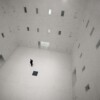While doing some interviews among leaders and faculty at a Catholic institution this past year, I heard the phrase, “Charity is clarity” used among administrators. I loved the phrase since I think it accurately captures how ambiguity in Christian teaching, scholarship, and administration is often a failure to love. I think the phrase can also be applied to empirical research on Christian higher education. I find gaining clarity helps us determine whether we are faithfully loving God.
If one looks at Catholic higher education as a whole, one finds there is little attention paid to the integration of faith and reason (the usual Catholic way of labeling the topic). Now, one can point to a wonderful Catholic intellectual tradition from the past, but in the present, this tradition appears to have been marginalized within American Catholic universities except at ten institutions. This blog post presents evidence of this marginalization by looking at the course descriptions of the general education requirements at the 100 American Catholic institutions requiring a Christian course.
Required Christian Courses in Catholic Institutions
In my co-authored book, Christian Higher Education: An Empirical Guide, our team identified 125 Catholic institutions that required a Christian theology course. Our data was based on identifying whether institutions required a general theology course. I later realized, however, that although some Catholic institutions require a theology course if you examine the listing of the course options for this requirement, a student could sometimes simply take a world religions course, a course on Islam, or an indigenous religions class.
Thus, my second round of analysis did not count those institutions where students could take a non-Christian theology course instead of a distinctly Christian course as having a required Christian theology course. That change reduced the number to 100. In other words, only 57% of the 176 Catholic universities we studied have their general requirements set up in such a way that a student must take a Christian theology course.
Furthermore, if you examine the core curriculum of these institutions, only 13 of these institutions require a course on the Bible. Indeed, you are more likely to find a required course on social justice than a required course on the Bible at Catholic institutions.
Non-theological General Education Course Descriptions
Of those 100 Catholic institutions with a Christian theology requirement, only 26% have a required general education course outside of theology with theological language in the description. In a majority of those cases, this involved just a single required philosophy course. Interestingly, you will also find many more Catholic institutions requiring philosophy instead of the Bible. The Catholic confidence in reason over revelation never ceases to amaze and disappoint me.
During interviews at Catholic institutions, I often hear interviewees use the term, “the balance between faith and reason.” In light of my findings, I would argue that this current relationship is not exactly balanced. Historically, at least, the Catholic ideal was more of a synthesis (e.g., Aquinas); however, it would seem that is no longer the case for most institutions.
This claim is supported by my finding that only 10% of the 100 Catholic institutions I studied have two or more courses that include theological language in their general education course descriptions. Not surprisingly, all but one of these institutions also require a Bible course. Based on these findings, it appears that if the Catholic institution requires a Bible course, they will be more likely to use theological language in nontheological general education course descriptions.
In the end, only ten Catholic institutions demonstrate evidence of giving additional attention to the relationship between faith and reason in more than two of their general education course descriptions:
- John Paul the Great Catholic University
- Christendom College
- Thomas Aquinas College
- Wyoming Catholic College
- Thomas More College of Liberal Arts
- Ava Maria University
- Franciscan University
- Villanova University
- University of Dallas
- Benedictine University
Strikingly, only three of these universities were started by orders. Thus, it appears Catholic lay-led institutions are more likely to use theological language in course descriptions than others.
Now, I want to emphasize again that course descriptions merely tell you how the course is framed institutionally. They do not tell you what is taught in the course. As such, I do not want to claim more of this analysis than is warranted. That being said, course descriptions do reveal something important about how faculty or administrators are conceptualizing these courses.
The Way Forward
Of course, the Catholic tradition still clearly produces numerous thinkers who are thinking theologically about disciplines outside of theology. Thus, I want to close by sharing a quote from someone described as an “Anglo-Catholic” theologian, John Milbank. In the introduction to his book, Theology and Social Theory, Milbank offers some helpful advice to all Christian academics.
The pathos of modern theology is its false humility. For theology, this must be a fatal disease, because once theology surrenders its claim to be a meta-discourse, it cannot any longer articulate the word of the creator God, but is bound to turn into the oracular voice of some finite idol, such as historical scholarship, humanist psychology, or transcendental philosophy. If theology no longer seeks to position, qualify or criticize other discourses, then it is inevitable that these discourses will position theology: for the necessity of an ultimate organizing logic … cannot be wished away. A theology “positioned” by secular reasons suffers two characteristic forms of confinement. Either it idolatrously connects knowledge of God with some particular immanent field of knowledge—“ultimate” cosmological causes or “ultimate” psychological or subjective needs. Or else it is confined to intimations of a sublimity beyond representations, so functioning to confirm negatively the questionable idea of an autonomous secular realm, completely transparent to rational understanding.1
In light of Milbank’s quote, I think it might be helpful to consider what could be changed.
First, I wonder if all faculty at Catholic universities should take what I think is one of the most helpful required general education courses I have found. The course is a required first-year course experience at St. Mary’s University (MN) entitled, “Thinking Theologically.” The course description reads, “This course introduces first-year college students to the methods and practices of thinking theologically … The course also embeds how theology is examined at a university defined by multidisciplinary approaches to truth and knowledge.” In my experience, many Christian professors lack this skill. They know how to think within their discipline, but they do not know how to think theologically about their discipline, a particular course, or even a course description. That may be why most Catholic general education course descriptions read the same as any secular university’s course descriptions. Such institutions need to teach their faculty to “think theologically.”
Second, I would suggest that each faculty member should consider theological questions when thinking about their own discipline and the general education or major courses offered within it: 1. How does my discipline reflect aspects of God’s good creation or sacramentality?2 For example, do health classes discuss the stewardship of the body that God has gifted us or Catholic theology of the body? Second, how has my discipline fallen or become sinful? What is wrong with it? Any fifty or sixty-year-old practitioner of your discipline should have plenty to say about that question. What would it take to redeem one’s discipline (i.e., reverse the fall in one’s discipline)? Granted, Jesus is the ultimate Savior who reversed the fall, but we are also called to join Christ in finishing that work throughout the world and within our discipline. Or to speak in a more Catholic language, where do we see grace mediated through creation and the incarnation? Finally, what would my discipline or course look like in the final Kingdom of God? Will we still be practicing biology or health in the Kingdom of God? Those questions could be applied to any general education course within any discipline to help give those courses theological framing. It might prevent Catholic higher education from marginalizing theology from general education—what it currently appears to be doing.
Footnotes
- John Milbank, Theology and Social Theory: Beyond Secular Reason, 2nd ed. (Malden, MA: Blackwell Publishing, 2006), 1.
- Melanie M. Morey and John J. Piderit write, “Sacramentality means that reality is suffused with the presence of God and is sacred…Any person or culture can find God as long as he or she remains open to and inquisitive about truth, beauty, and goodness. Human beings are favored by God, that is, are graced by Christ sharing human nature.” Catholic Higher Education: A Culture in Crisis (Oxford, 2006), 133.
























You are certainly right, Perry, in remarking that faculty do not know how to “think theologically.” In the twenty-plus years that I ran a Faith and Reason lecture/dinner, only a few faculty were able to engage (Lutheran preference for “engage” rather than” integrate”) their faith with their field of learning. That is partly because their graduate educations insisted they keep their Christian faith separate from their secular field.. So if colleges or universities want to engage faith and learning they will have to find ways to train most faculty to think theologically about their secular fields. Calvin College used to insist that faculty take training in such an approach but I don’t know if that is still the case. I hope so. Serious Catholic schools are doing that.
Robert Benne, Roanoke College
Calvin indeed still has this training, it’s called the Kuiper Seminar:
https://calvinchimes.org/2024/02/12/faculty-orientation-seminar-celebrates-30-year-anniversary/
Does this professor have a point, or is he just making a mountain out of the proverbial mole hill (i.e., basing a whole paper on nothing more than a passing observation of various collegiate course descriptions)? The Milbank quote was somewhat complex, but nevertheless, it is always good to read another perspective about what Anglicans (Church of England or Episcopalians) believe. They don’t teach you this stuff in basic catechism class! Good job, professor – Our Church ought to make you an honorary bishop or something.
I guess whether you think I have a point will be based on whether you think theology, theological language, and theological framing is important. I’ll pass on the honorary bishop thing.
It would be an equally interesting study to compare course descriptions for general education classes at conservative Protestant colleges/universities with their counterparts in secular institutions. We might discover the same lack of theological engagement in courses outside the religion department. It is difficult for new faculty to shake off the constraints against engaging theologically that is endemic in most graduate programs.
Agreed!